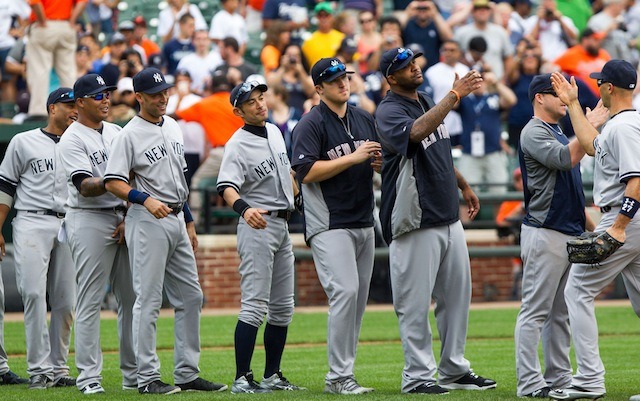Although sports teams like to tell fans that building a team is a process that takes time, that’s not the case with every franchise that competes for a championship. That’s because, when a team is blessed with cash, they will cut corners on developing their own players and spend on lavish free agents. Sometimes, it works out. Other times, though, not so much. Bur for those organizations that did end up spending big money and got rewarded, this one’s for you—because these are the teams that bought a championship.
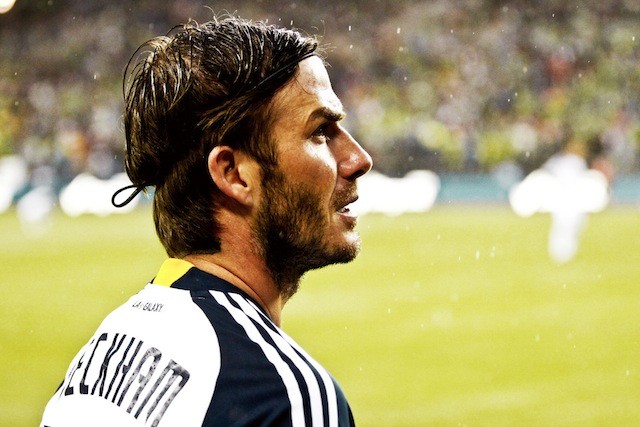
15. 2011 Los Angeles Galaxy
While there was a lot of hype surrounding the team as early as 2007 when English superstar David Beckham came Stateside, it wasn’t until 2011 that the L.A Galaxy really saw the fruit of their labor—ahem, the checks actually be checked. Sure, Becks never actually made $250 million, as reports had suggested, but he still made over $5.5 million per season, a huge price to pay for an MLS player. Teaming him with U.S. star Landon Donovan and Juan Pablo Angel, the Galaxy earned the MLS Cup.
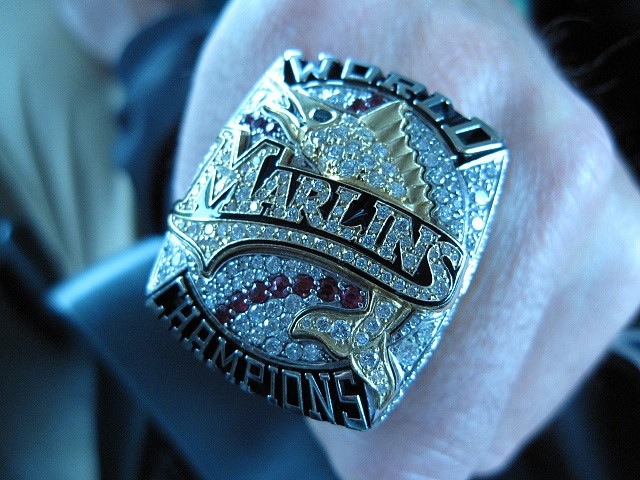
14. 2003 Florida Marlins
Ask any baseball fan in South Florida about their opinion of Marlins owner Jeffrey Loria, and they’ll probably give you an answer that’s not too kind. Known as a bit of cheapskate, Loria splurged on a high-priced roster—for the second time—in 2003, helping the Marlins win a World Series. And, in true Loria fashion, immediately tore it apart once the season was over. Rather than continue to pay both established or up-and-coming players like Ivan Rodriguez, Derrek Lee, Carl Pavano and Brad Penny, the team shipped those guys off in an effort to decrease payroll after a season of spending.
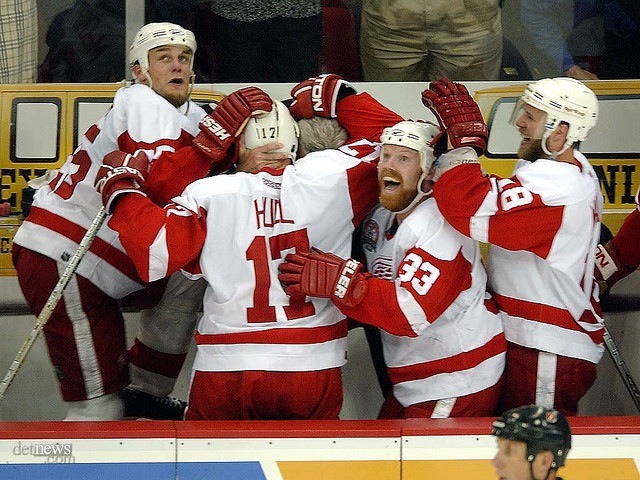
13. 2001-02 Detroit Red Wings
Superstars like Dominik Hasek, Brendan Shanahan, Chris Chelios and Steve Yzerman are just a few of the names that were on the 2001-02 Detroit Red Wings’ roster. All future Hall of Famers, it’s ridiculous that the team was able to pay each what they deserved, yet, it worked out for them, as they hoisted the Stanley Cup that year. Prior to the NHL having a salary cap, Detroit’s payroll was $80 million in 2001-02, and, it wasn’t until four years later, that the league finally adopted a cap—and set it at just $39 million.
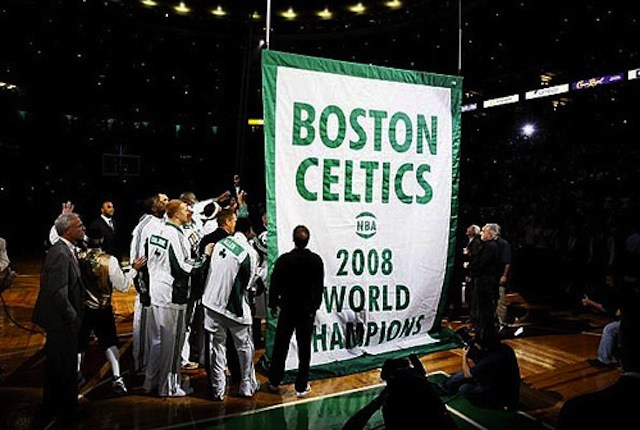
12. 2008 Boston Celtics
In this era of having more than just one, or even two, superstar on a team, the 2008 Boston Celtics brought together three, future Hall of Famers to accomplish winning a championship together. Whether by trade or free agency, the Celts teamed Ray Allen, Kevin Garnett and Paul Pierce together, with the team making a run to back-to-back NBA Finals, winning one together in the first year they were a trio. The blueprint has since been duplicated as the Beantown group was split up.
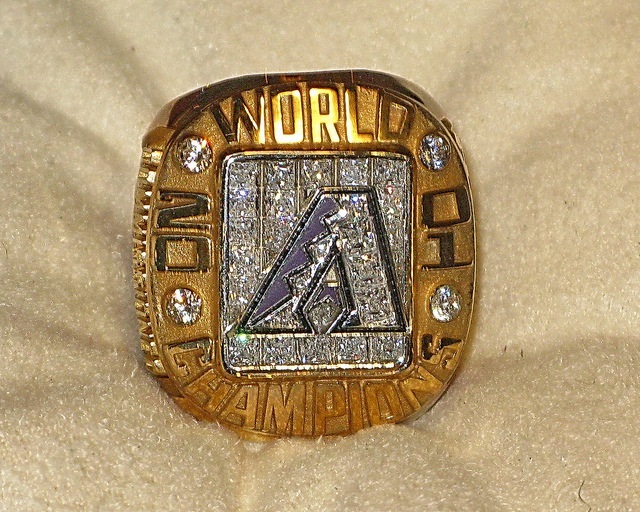
11. 2001 Arizona Diamondbacks
Winning a World Series for the first time in their history—which began just eight years prior—the Arizona Diamondbacks used some serious money to accomplish such a feat. Paying for pitchers like Randy Johnson and Curt Schilling, the team defeated the New York Yankees in seven games in order to end the season as champs. While the team’s payroll was a whopping $43 million less than their Yankee opponents, Arizona still had one sitting at $81 million—which was good enough for eighth in the majors. No, it wasn’t extreme, but it was still very high for a mid-market team like the Diamondbacks.
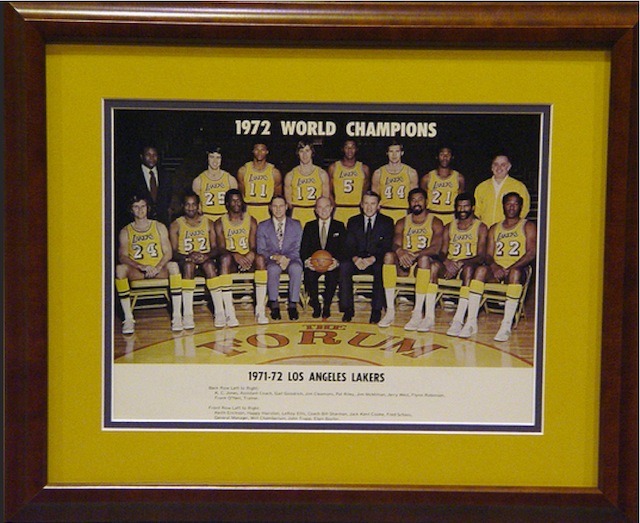
10. 1971-72 Los Angeles Lakers
Prior to the Buss family owning the L.A. Lakers, Jack Kent Cooke signed the checks for the team—and did so without much hesitation as to what it cost him to win. With stars like Wilt Chamberlain, Jerry West and Elgin Baylor, the Lakers rode a record 33-game win streak towards an NBA title, with Chamberlain and West making big-time money in order to earn that trophy. The numbers might not sound too big these days—Wilt earned $250,000 and West at $100,000—but, in those days, money like that was uncommon.
Photo via Flickr/basketballtartar
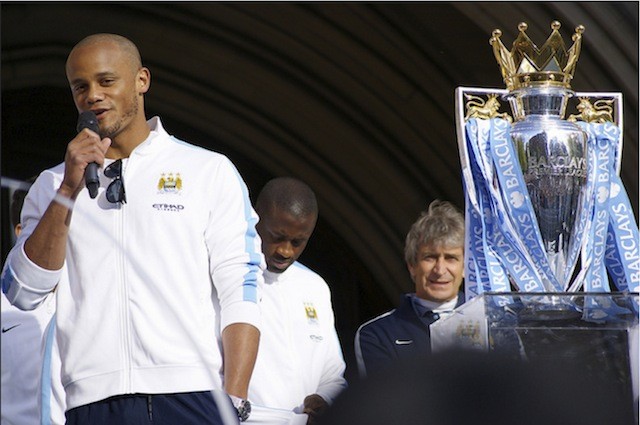
9. 2011-12 Manchester City
Taking ownership in 2008, it’s believed that Sheikh Mansour set aside nearly $700 million to acquire new players and compete for a variety of titles—so that’s what he did. Winning their first ever Premier League title in 2011-12, Manchester City paid stars like Mario Balotelli, Carlos Tevez, Sergio Aguero and Edin Dzeko crazy amounts to deliver such an accomplishment—and Mansour was happy he did so, as it helped put the club amongst the best in English soccer since.
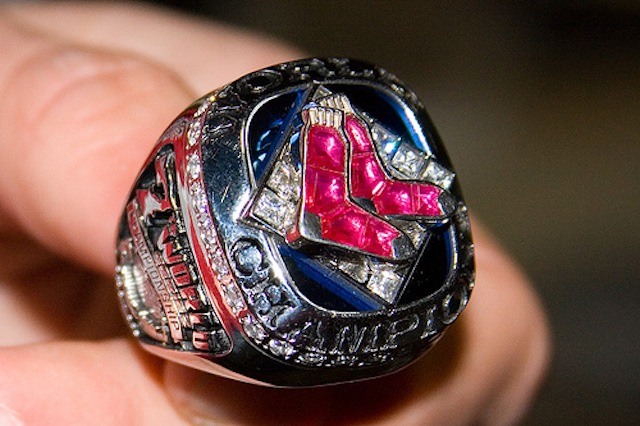
8. 2007 Boston Red Sox
As much discussion as there has always been about the New York Yankees spending spree, their rival Boston Red Sox are victims of the same practice. While Boston did win their second World Series title since the 2004 win broke an 86-year drought, they did so with a payroll of $143 million—good enough for second-highest in the majors. Sure, it paled in comparison to the Yanks’ $189 million figure, but, don’t be fooled, Boston’s roster was made up of players who made a lot of money.
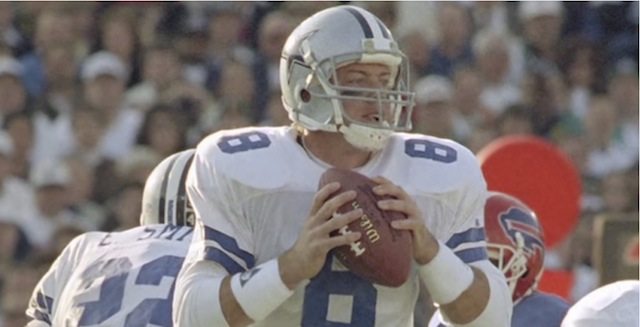
7. 1995-96 Dallas Cowboys
In the midst of an intense rivalry with the San Francisco 49ers—who had just won the Super Bowl—the 1995 Dallas Cowboys knew that they had to try and gain control of the NFC back after their two Super Bowl titles during the 1992 and 1993 seasons. So, owner Jerry Jones spent. Although the salary cap restricted the Cowboys and saw a few key contributors depart, Jones inked cornerback Deion Sanders to a huge deal in the offseason, as well as paying superstars Troy Aikman, Emmitt Smith and Michael Irvin big money. The future Hall of Famers led the Boys to a third title in the ’90s that season, so, I’m sure, Jones was satisfied with writing such checks.
Photo via YouTube
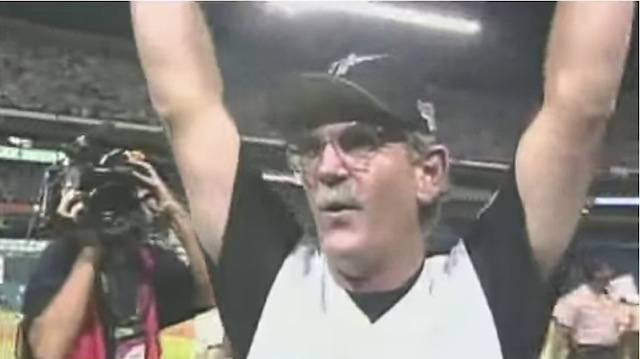
6. 1997 Florida Marlins
In case I didn’t do a good enough job describing the hate towards Marlins owner Jeffrey Loria earlier, the offseason moves he made following the 1997 World Series season might do a beter job. That’s the season following the team’s first ever championship, which came just four years after opening the doors to their franchise. In 1997, the Marlins had high-priced players like Gary Sheffield, Bobby Bonilla and Moises Alou, along with pitchers Kevin Brown, Al Leiter and Robb Nen, who, immediately after the World Series title, were shipped away in a massive fire-sale that still doesn’t sit well with fans.
Photo via YouTube

5. 1997-98 Chicago Bulls
At the time, the 1997-98 Chicago Bulls probably weren’t looked at as a team who was just spending money for a championship. But, looking back now, that’s exactly what they did, as the ’97-98 season turned out being the last title in the Michael Jordan-Scottie Pippen-Phil Jackson run that included six total. WIth Jordan making $30 million that year and Pippen in the final year of his deal, the Bulls knew it was all-or-nothing in 1998. They won their third-straight title, saw MJ retire for the second time, watched Pippen sign a massive deal with the Houston Rockets and Phil Jackson take time off from coaching, so, I guess, the plan worked.
Photo via Flickr/Jason Garrett
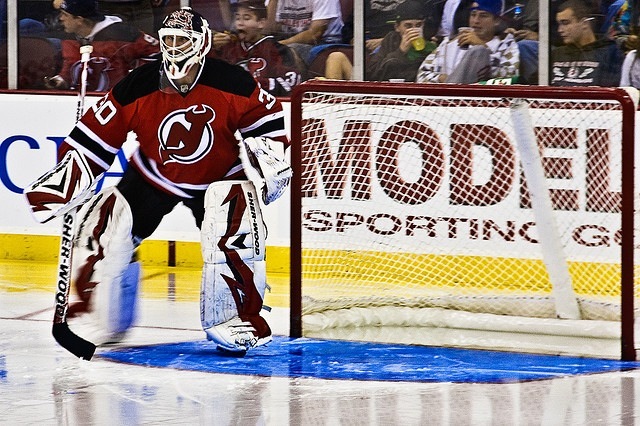
4. 2002-03 New Jersey Devils
After a 30 percent jump in their payroll from 2001-02 to the following season, the New Jersey Devils had hoped that their immediate splurge would lead to a Stanley Cup title. With, then goalie, Martin Broudeur between the pipes, they had the main cog to make a deep playoff run, but needed other players around him to accompany his star-power. The Devils definitely received that, getting a full season from Joe Nieuwendyk and Jamie Langenbrunner, who were acquired the previous year by trade.
Photo via Flickr/Francisco Diez
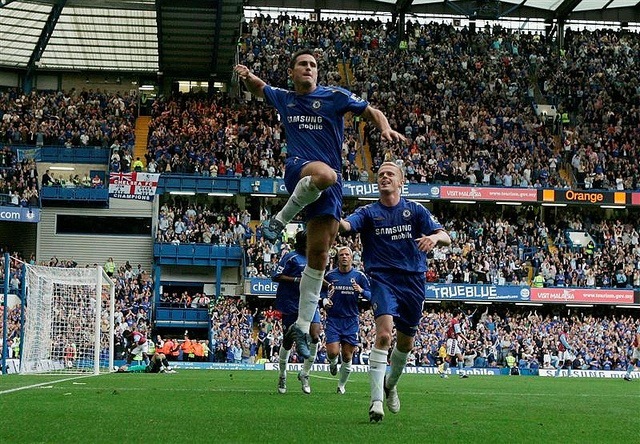
3. 2005 Chelsea
Thanks to flashy billionaire owner Roman Abramovich, English Premier League squad Chelsea will never find itself rebuilding. With deep pockets and a competitive streak, the Russian owner will never look at developing players, instead choosing to sign big names to please fans and compete for championships. The 2005 Chelsea team did just that, nearly doubling their spending from the previous year to acquire high-priced stars like Michael Ballack and Andriy Shevchenko, mixing them in with a roster made up of players making just as many millions.
Photo via Flickr/officialchelseafc
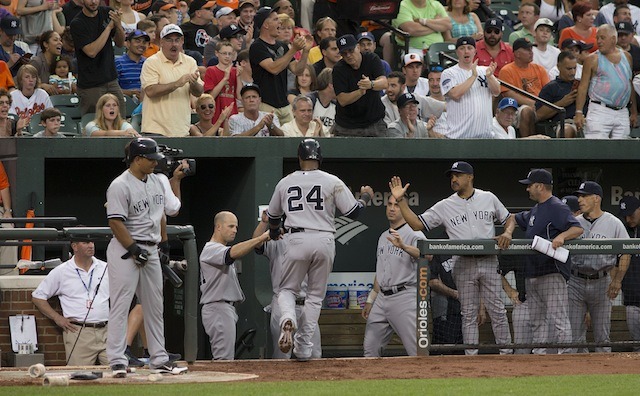
2. 2009 New York Yankees
With an Opening Day payroll of over $200 million, the New York Yankees had, once again, found themselves atop the list of big spenders in the majors. Unsurprisingly, the Bronx Bombers hoped that an offseason full of writing checks would lead to a World Series title—and they were right. After signing pitchers CC Sabathia and AJ Burnett, along with other key additions, the Yanks ended the season as champs again. And thanks to high-priced starts already on the roster like Derek Jeter and Alex Rodriguez, New York had one of the priciest rosters in MLB history.
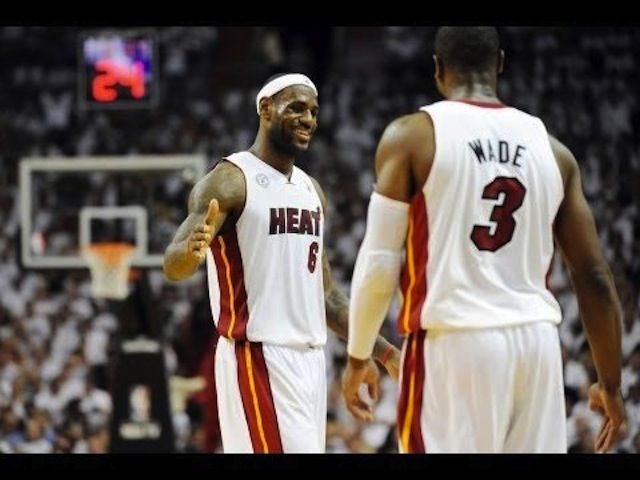
1. 2011-12 Miami Heat
Arguably, the most famous bunch of guys compiled for a championship run, the Miami Heat from 2010-14 were like a video game roster. Constructed to do one thing—win championships—the Heat had superstars like LeBron James, Dwyane Wade and Chris Bosh use their talents to help deliver a title, with each signing for about $17 million per season. The ring they won together in 2012 was the first for both James and Bosh, and second for Wade, proving that their maneuver to join forces was worth it, and, most likely, wouldn’t have happened as individuals.

